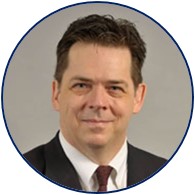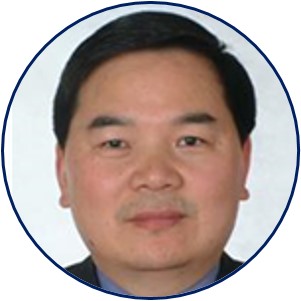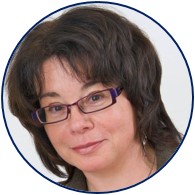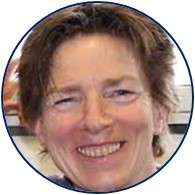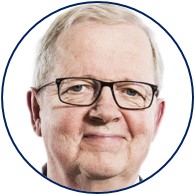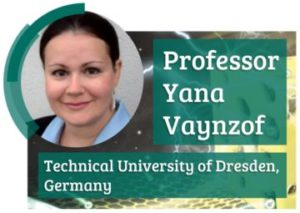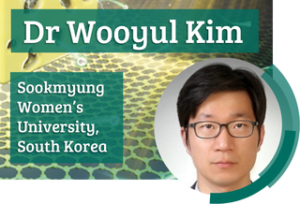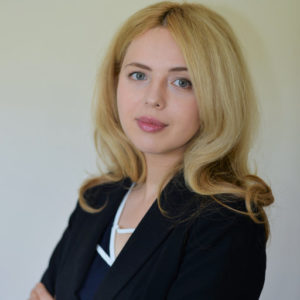EES Editorial Board members Joseph Hupp (Editorial Board Chair), Xinhe Bao, Linda Nazar, Jenny Nelson, and Jens Nørskov have been recognised as 2021 ClarivateTM Highly Cited Researchers.
Professor Joseph Hupp is a Morrison Professor of Chemistry at Northwestern University and a Senior Science Fellow in the Materials Science Division at nearby Argonne National Laboratory. He is the Deputy Director of the Inorganometallic Catalyst Design Center (ICDC), the team lead for “Redox Catalysts for Energy-Demanding Reactions” thrust within the Center for Light Energy Activated Redox Processes (LEAP), a DOE-sponsored EFRC and successor of the Argonne-Northwestern Solar Energy Research (ANSER) Center. Joe’s research centers on energy- and defense-relevant materials chemistry, including materials for chemical separations, chemical catalysis, light-to-electrical energy conversion, catalytic water oxidation, high-capacity storage and release of molecular hydrogen, and capture and destruction of chemical warfare agents.
Read his work in EES:
Evaluating topologically diverse metal–organic frameworks for cryo-adsorbed hydrogen storage
Energy Environ. Sci., 2016, 9, 3279-3289
https://doi.org/10.1039/C6EE02104B
A thermodynamic tank model for studying the effect of higher hydrocarbons on natural gas storage in metal–organic frameworks
Energy Environ. Sci., 2015, 8, 1501-1510
https://doi.org/10.1039/C5EE00808E
Professor Xinhe Bao received his PhD in Physical Chemistry from Fudan University in 1987 and then worked as a Fellow of Alexander von Humboldt in Frize-Haber institute of Max-Planck Society in Berlin/Germany. He became a full Professor of the Dalian Institute of Chemical Physics (DICP, CAS) in China in 1995 and the group leader of Nano & Interface Catalysis at the State Key Laboratory of Catalysis later. He held the position of the institute director from 2000 to 2007, and was appointed the President of Shenyang Branch of the Chinese Academy of Sciences in 2009. Bao is the member of Chinese Academy of Sciences, the member of the Academy of Sciences for the Developing World (TWAS) and the fellow of the Royal Society of Chemistry (UK). He is currently the vice President of Chemistry Society of China and the President of Chinese Society of Catalysis.
Read his work in EES:
Ionogel-based sodium ion micro-batteries with a 3D Na-ion diffusion mechanism enable ultrahigh rate capability
Energy Environ. Sci., 2020,13, 821-829
https://doi.org/10.1039/C9EE03219C
Highly efficient H2 production from H2S via a robust graphene-encapsulated metal catalyst
Energy Environ. Sci., 2020,13, 119-126
https://doi.org/10.1039/C9EE03231B
Professor Linda Nazar was educated at UBC and the University of Toronto where she received her Ph.D. degree in materials chemistry. She moved to Exxon Corporate Research to take up a Postdoctoral Fellowship. In 1987 she joined the Chemistry Department at the University of Waterloo, where she initiated her independent academic career. She was promoted to full professor in 2000 and established the Laboratory for Electrochemical Energy Materials. She has been an invited professor at the IMN/Université de Nantes, the Materials Science department in UCLA, the CNRS in Grenoble, France; and at Caltech as a Moore Distinguished Scholar (Dept of Materials Science) in 2010. Dr. Nazar has achieved international recognition as a leader in the areas of solid state chemistry, electrochemistry, energy storage and materials science.
Read her work in EES:
Coulombically-stabilized oxygen hole polarons enable fully reversible oxygen redox
Energy Environ. Sci., 2021,14, 4858-4867
https://doi.org/10.1039/D1EE01037A
A new halospinel superionic conductor for high-voltage all solid state lithium batteries
Energy Environ. Sci., 2020,13, 2056-2063
https://doi.org/10.1039/D0EE01017K
Professor Jenny Nelson is a Professor of Physics at Imperial College London, where she has researched novel varieties of material for use in solar cells since 1989. Her current research is focussed on understanding the properties of molecular semiconductor materials and their application to organic solar cells. This work combines fundamental electrical, spectroscopic and structural studies of molecular electronic materials with numerical modelling and device studies, with the aim of optimising the performance of solar cells based on molecular and hybrid materials. Since 2010 she has been working together with the Grantham Institute for Climate Change to explore the mitigation potential of photovoltaic, and other renewable, technologies. She has published over 200 articles in peer reviewed journals, several book chapters and a book on the physics of solar cells.
Read her work in EES:
Side-chain tuning in conjugated polymer photocatalysts for improved hydrogen production from water [OPEN ACCESS]
Energy Environ. Sci., 2020,13, 1843-1855
https://doi.org/10.1039/D0EE01213K
Design and evaluation of conjugated polymers with polar side chains as electrode materials for electrochemical energy storage in aqueous electrolytes [OPEN ACCESS]
Energy Environ. Sci., 2019,12, 1349-1357
https://doi.org/10.1039/C8EE03518K
Professor Jens Nørskov is a Villum Kann Rasmussen Professor at Technical University of Denmark. He earned his PhD in theoretical physics from Aarhus University in Denmark in 1979, and is well known for his work on the theoretical description of surfaces, catalysis, materials and nanostructures. Nørskov’s research aims at developing theoretical methods and concepts to understand and predict properties of materials. The aim is to understand which surface properties determine their chemical activity and to use that insight, in combination with large-scale computations, to design new catalytic surfaces and nano-structures. Applications are primarily in energy transformations, including (photo-) electrochemical water splitting, CO2 reduction, nitrogen reduction and syngas reactions.
Read his work in EES:
Increasing stability, efficiency, and fundamental understanding of lithium-mediated electrochemical nitrogen reduction
Energy Environ. Sci., 2020,13, 4291-4300
https://doi.org/10.1039/D0EE02246B
Rapid flame doping of Co to WS2 for efficient hydrogen evolution
Energy Environ. Sci., 2018,11, 2270-2277


